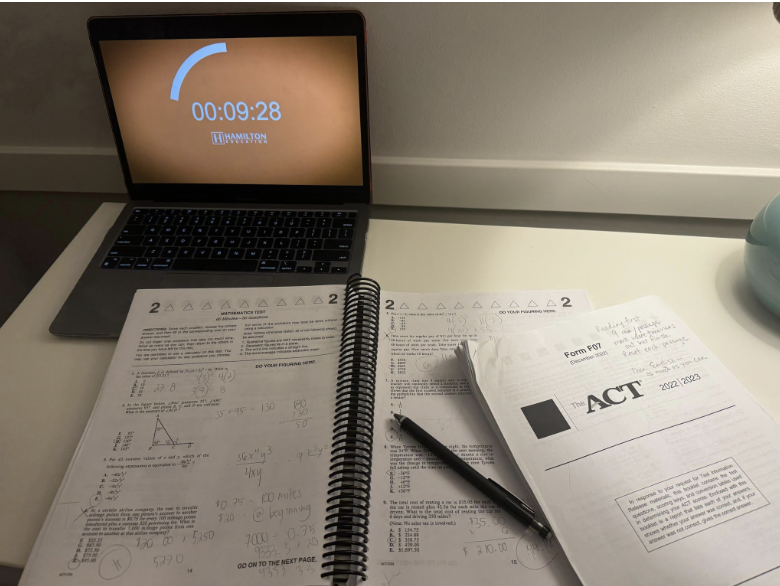Schools should have weighted grades
Mr. Bowler teaches an AP Calculus BC class. This is just one example of an AP class at BSM that does not have weighted grades.
October 15, 2019
BSM currently weights student grades on a 4.0 scale. No matter if it’s a standard, honors, or AP course, the highest GPA one can receive is a 4.0. I think that BSM and all schools should weight their grades above a 4.0 scale for AP classes.
One of the reasons that schools utilize weighted grades is to determine class rank. BSM doesn’t rank their students, so some might think there is no point in weighting grades. However, there are a lot more benefits to weighting grades than determining how a student is ranked. Weighted grades can help set a student up for success in the future and encourage students to take the classes they really want to take.
Without weighted grades, I think BSM is discouraging students from taking AP classes. Currently, at BSM, AP courses appear daunting because they are much more challenging than regular courses, and they have the potential to tank a student’s GPA. Weighting grades for more challenging courses would offer an incentive for students to push themselves more academically. “The fundamental rationale for weighting grades is that the practice provides an incentive for students to challenge themselves academically. By assigning greater value to grades earned in more challenging courses, weighted grades remove a potential disincentive posed by tougher courses,” The Glossary of Education Reform claims.
If AP courses are weighted, more students will take AP courses because they won’t have the fear of how it will affect their GPA. The more students who are encouraged to take AP classes, the more BSM students pushed to their academic potential.
Our culture as a school and a country is pushing students to solely care about what grade they earn rather than what they are actually learning or what they are getting out of the class. Allowing students to earn a B in an AP course and still have a very impressive GPA will take the emphasis off of maintaining perfect grades. For students to get the most out of their education, they should be able to push themselves in highly challenging courses, without the fear of their grades holding them back.
If BSM can get more students to take AP classes by implementing weighted grades, students will be greatly benefited in the college admissions process, too. Taking AP classes displays to colleges that the student is ready to take college-level courses. “Many highly selective schools put a big emphasis on whether or not applicants have taken AP courses. Even less selective schools see the value in a student’s efforts to challenge themselves by taking AP courses. Doing well in these classes shows admissions offices that you’re ready for college-level coursework,” Taylor Sienkiewicz of Peterson’s claims.
The benefits of AP classes doesn’t stop when one gets into college, but they will continue once they are there. Students who took AP courses in high school have a better chance of receiving scholarships, graduating early, and succeeding in college. A 2009 study reported by the College Board found… AP students who earned college course credit based upon their AP Exam scores had statistically significantly higher subject-area GPAs than students without AP credit.
If BSM weights AP courses, students will be able to take AP courses without the pressure of their GPA stopping them. It will also remove the idea that one must keep perfect grades rather than actually growing intellectually. With weighted grades, more students will take AP courses, so more students will succeed in college and beyond.






















































